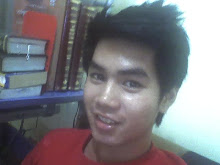Are we (Filipinos) worth dying for? This question might be the same question that Ninoy would be asking if he still lives in this current time. Yet, the simple question of are we living for the cause of our country and for others, remains a hanging question as the reality consumes the idealism of pagiging makabayan. Nationalism, maybe of an out-of-date ideal in this borderless world, but internationalism presupposes nationalism. If there are nations to be united, there must be nations to unite. The problem of our nation is that we are suffering from a fragmented society caused by a dismantled institutionalized injustice and degraded morality. Even Rizal who earned a mocking name of “Papa” or Pope from his fellow Filipinos in
Andres Bonifacio has once asked, “What must we do?”, and as a reply, Jacinto said: “Reason tells us that we must not waste our time waiting in vain for promises of felicity that will never come… Let us consecrate all our strength to the good cause, with unshakeable and absolute faith in its success…” Our ultimate goal of uniting the nation could only be attained in rightful reasons and means, and that is the reason why we, Filipinos, should learn how to love our country, as patriots for their motherland. In the simplest things, we could love our country by respecting and abiding with the laws. Who would suffer traffic and accidents in EDSA or in ordinary streets if none will jaywalk? Just imagine that if patriotism resides in the hearts of our OFWs, people like me would grow up with their parents on their sides. Even if it is at the expense of having low income, the hardworking and productive Filipinos abroad would abet to strengthen our country’s economy. Envision how our engineers in the Middle East would help build first class facilities in the country, or even the 40,000 skilled nurses of
It is not impossible for us to attain the visions above. We must at least live with the principles and values from our national tradition. “Pakikisama: the willingness to share with one another the burdens as well as the rewards of living together. Pagkakaisa: the building up of an articulated national community through forms of social organization…Pagkabayani: the readiness to put the common good of the nation above the private interest… Pakikipagkapwa-tao: …a dedication to the development of one’s own nation.” (de la Costa, Horatio, Challenges for the Filipino, Lenten Lectures, 1971). Living to such ideals would create another Dr. Abelardo Aguilar whose genuine knowledge has invented the Antiobitic Erythromycine, Agapito Flores for his ingenuity of discovering the fluorescent lamp, and Eleanor “Connie” Concepcion Mariano for her dedication as the former








